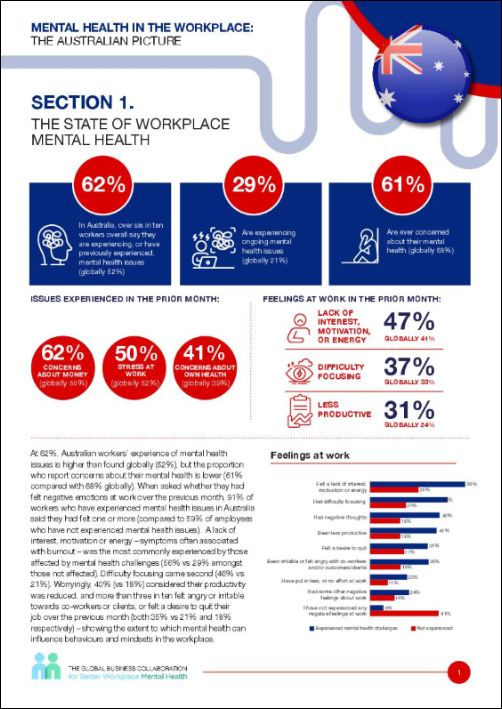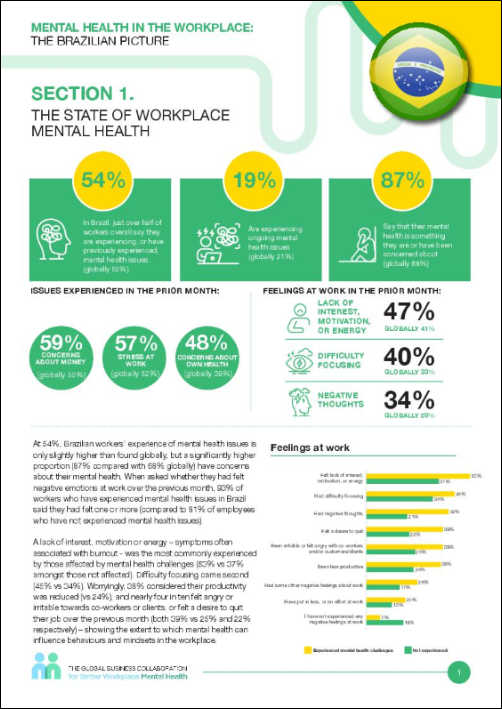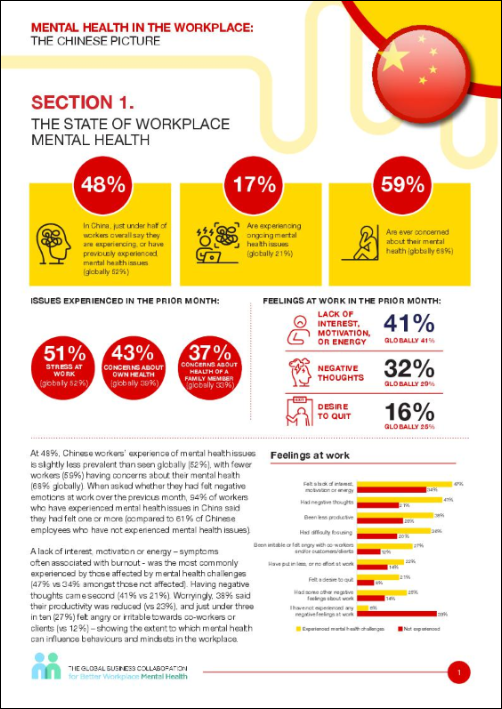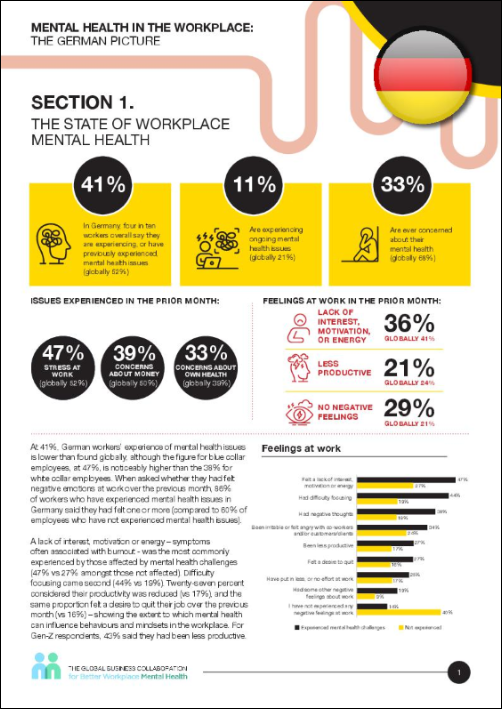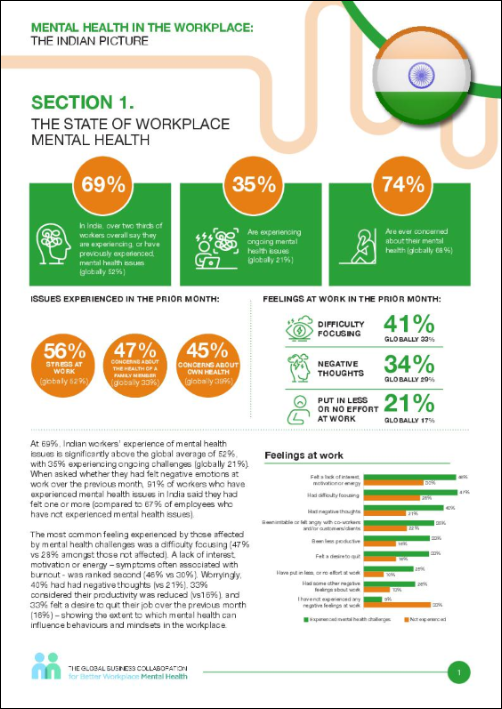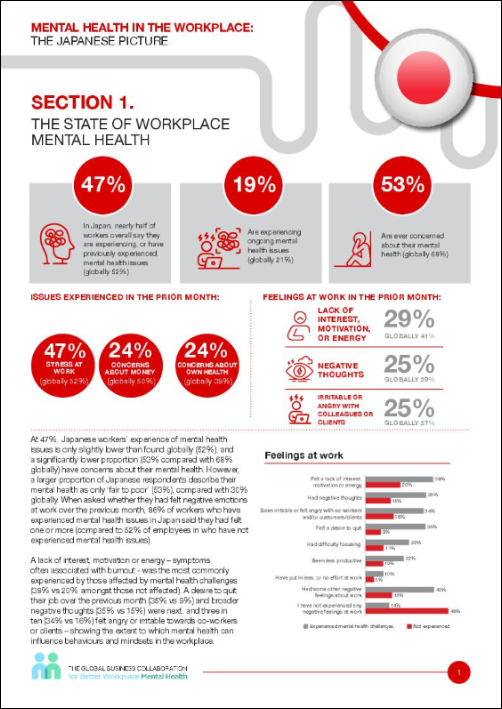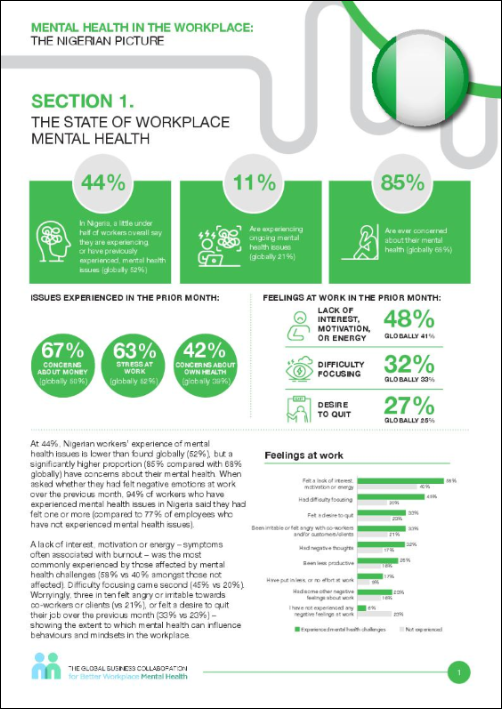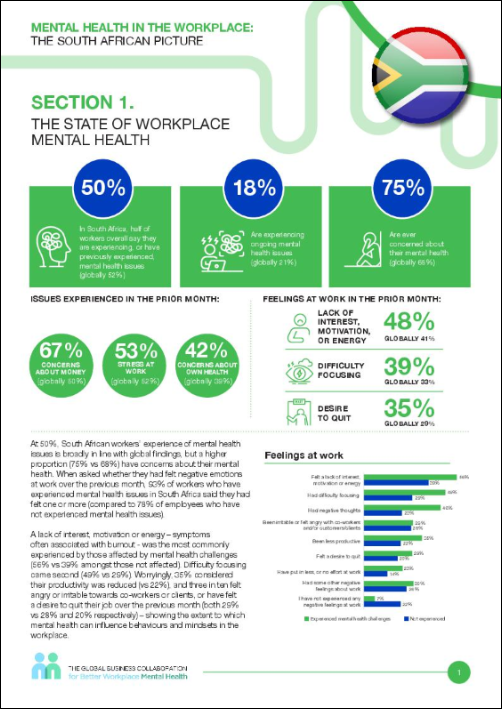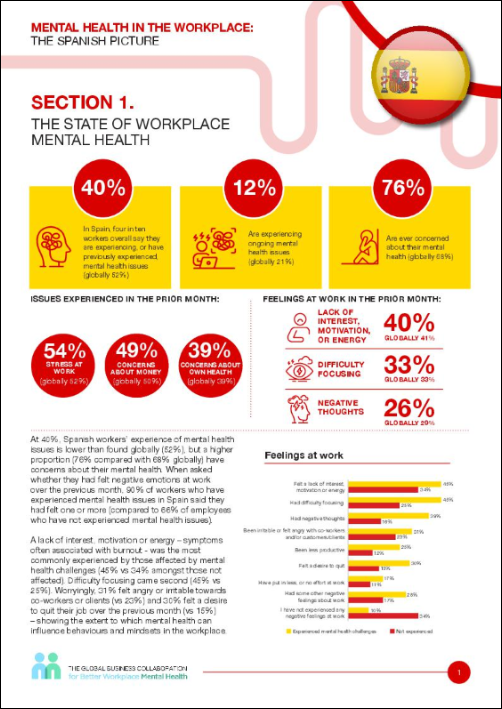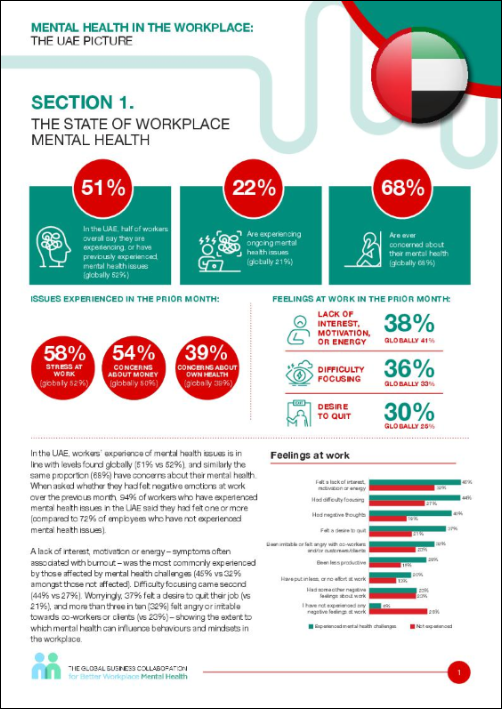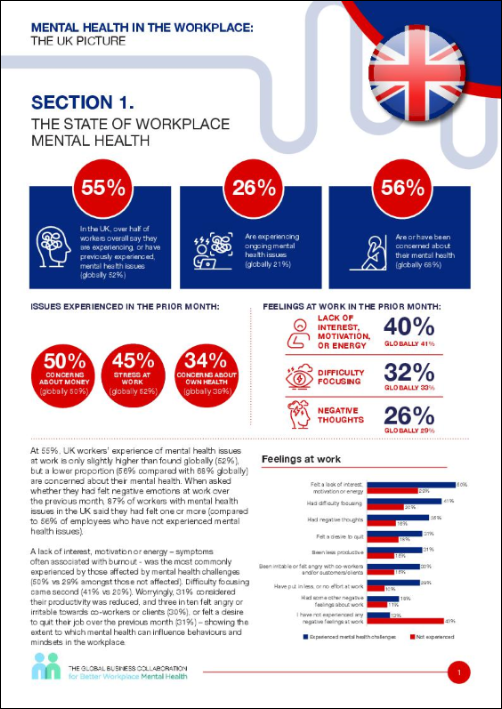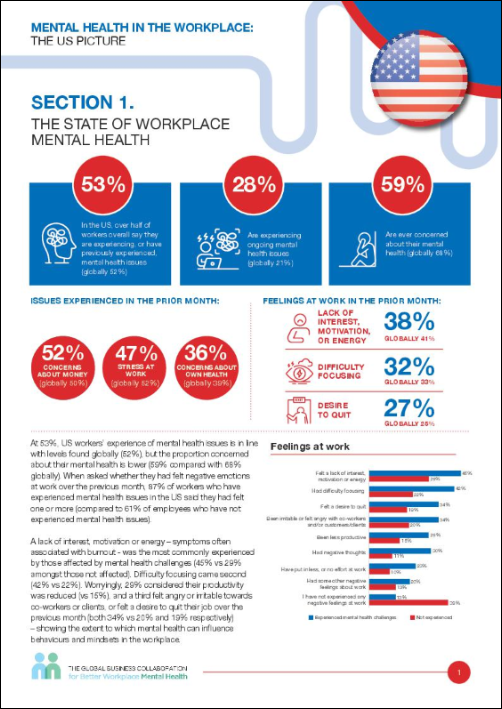The Leadership Pledge
The MindForward Alliance Leadership Pledge1 is a public commitment, by businesses globally, to build mentally healthy workplaces. It enables organisations and their leaders to demonstrate that they are prioritising mental health in the workplace.
Your organisation can demonstrate its commitment to tackling this issue by signing the Leadership Pledge today.
Over half of all employees globally say they are currently experiencing or have previously experienced mental health challenges.
Nearly three quarters (73%) of employees feel that it’s extremely or very important for employers to prioritise the mental health of their workforce
When leaders speak out on mental health, 85% of people believe their employer cares about their mental health, compared to just 31% when leaders don’t.
The Leadership Pledge

Through the MindForward Alliance Leadership Pledge, we strive to raise awareness on the importance of protecting and supporting employee mental wellbeing and to inspire action so that every workplace will be good for people’s mental health.
Work can be a protective factor for mental health and workplaces that prioritise the mental wellbeing of their people benefit from increased productivity, talent attraction and retention and improved financial performance.
Whilst there has been some progress on workplace mental wellbeing over recent years, more needs to be done. Business leaders have an opportunity to not only accelerate the creation of mentally healthy workplaces but to effect change in their communities.
By signing the Pledge your organisation can visibly demonstrate your commitment to employee mental wellbeing and become part of a community of like-minded organisations committed to accelerating progress in workplace mental wellbeing.
Our 6 Leadership Pledge commitments are aligned to academic research which demonstrates the need to take a holistic approach to employee mental wellbeing that addresses organisational culture, the working environment and access to support.
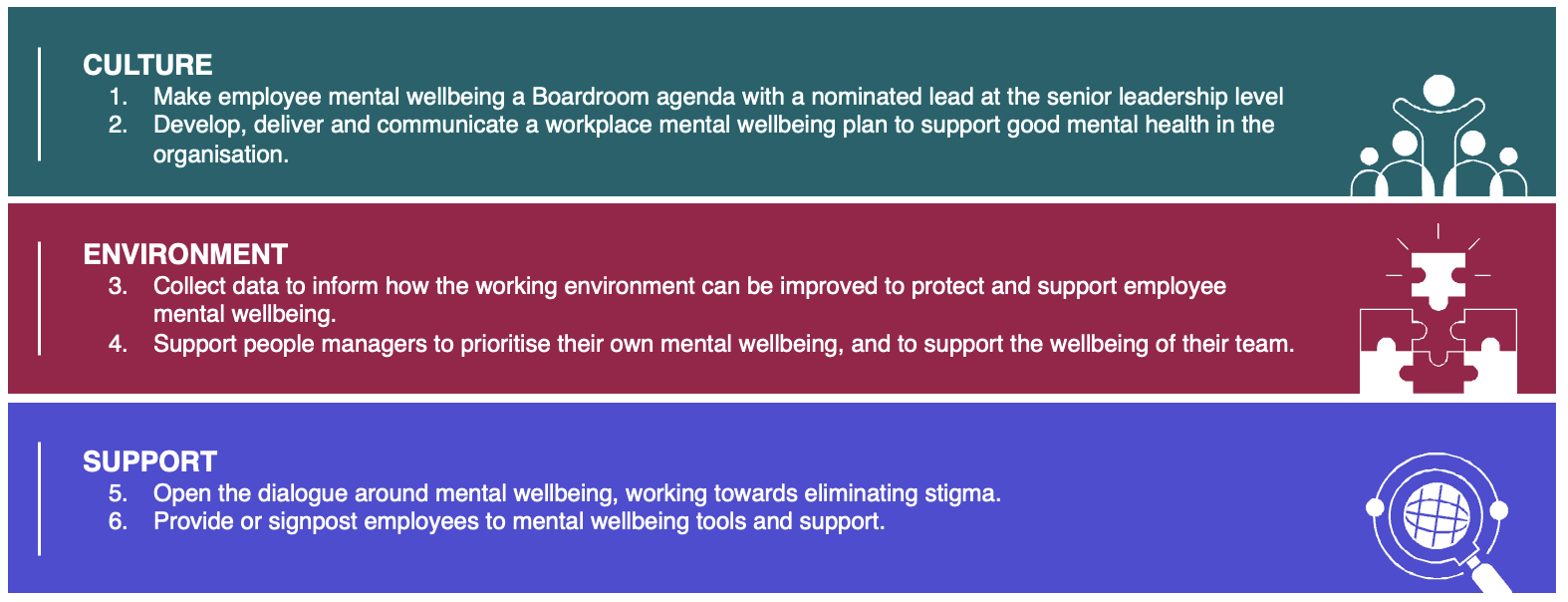
- Get updates about mental health in the workplace
- Be the first to hear about upcoming events and activity
- Read our latest research, case studies and guides
Sign the Pledge
What are the benefits of signing?
No one business has all the answers when it comes to workplace mental health.
By signing the Leadership Pledge, you will;
- Demonstrate your commitment to workplace mental wellbeing
- Access free world-leading mental wellbeing resources and events
- Be part of a community inspiring positive action around the world on mental wellbeing in the workplace
How to Sign
We are calling on senior leaders3 around the world to sign the MindForward Alliance Leadership Pledge and join our community of committed organisations working together to accelerate progress in workplace mental health.
You will be prompted to complete a short form to share your details and the organisation’s logo. Once you have signed the Pledge, your organisation’s details and logo will be shared on our social media as we welcome you to our community.
You will also start receiving our communications providing mental wellbeing resources to support you develop a mentally healthy workplace.
What's your commitment after signing?
Take action
By signing the Leadership Pledge, you are committing to taking positive action on workplace mental health in every region in which your organisation operates. We encourage you to tap into our free resources to support your journey.
Share
We encourage our signatories to share their learnings, experience and examples of good practice to help accelerate progress across our community. This can be through case studies, blogs or speaking at events.
Advocate
We encourage you to support the campaign and encourage others in your networks and supply chains to join our community and sign the Leadership Pledge. Together we can push forward global progress on workplace mental health.
Cost
There is no cost to signing the Leadership Pledge and joining our community of like-minded leaders.
By signing the Pledge a leaders demonstrates their organisation's commitment to:

Our signatories
3,1 million employees and counting
To change the world of workplace mental health, we need a worldwide effort.
Our community of Pledge Signatories are committed to improving workplace mental health by raising awareness, prioritising employee mental health, and enabling support for the people within their organisations.
We are continuously welcoming new businesses to the Leadership Pledge community.




















































































































































The Global Picture: Mental Health in the Workplace
Study Report: A Global Picture of Mental Health in the Workplace
As awareness around the importance of mental wellbeing increases, so does the need for employers to understand and address the impacts that mental health issues have on work outcomes. Work-related factors may also improve or undermine the mental health of employees.
Our groundbreaking global research study has gathered data from over 12,200 workers across 12 countries and multiple industries and job roles. It sheds light on the state of workplace mental health and seeks to support the global business community in building, fostering and embedding supportive cultures in their workplaces.

Key Insights
1 in 2 employees worldwide are dealing with ongoing mental health challenges, or have previously experienced them.
73% of workers stress the importance of employers prioritising mental health
56% of workers believe mental health is a current priority in their workplace
85% of workers feel supported, in organisations where their leaders speak about mental health
- Only 31% of workers feel supported in organisations where leaders don’t speak about mental health
The youngest generations, as well as those with disabilities, and those identifying as neurodivergent or LGBTQIA+ are feeling the strain the most.






